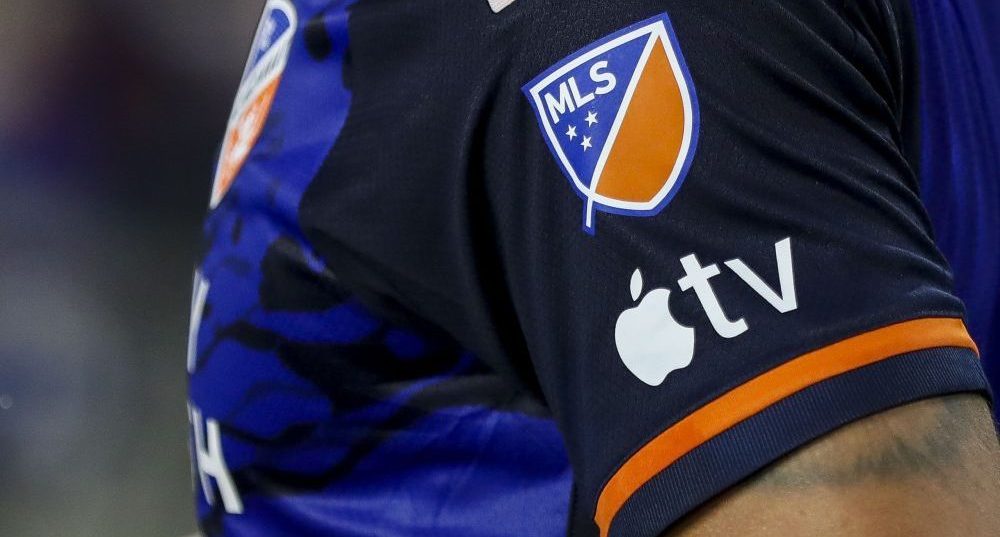MLS found itself in a bit of hot water over the weekend after publishing artificial intelligence-generated match recaps to its website without any human oversight.
According to a report by Margaret Fleming in Front Office Sports, MLS began using the AI to write standard game recaps “and isn’t double checking their accuracy.” Two recaps from this weekend’s contests included a disclaimer at the bottom: “This story was automatically generated based on match data. Content has not been reviewed by editorial staff.”
Both match recaps, one from an Orlando City-Vancouver Whitecaps game and another from an Inter Miami-Atlanta United game, featured short write-ups describing key moments in the game with little detail. The first paragraph of the Orlando-Vancouver recap reads as follows:
“Orlando started brightly with Adrián Marín forcing a blocked shot in the 4′, followed by a corner in the 5′ and Luis Muriel’s header being saved in the 6′. Vancouver responded with Thomas Müller’s shot saved in the 10′ and created several corners throughout the first half. After Duncan McGuire replaced Robin Jansson in the 18′, Orlando took the lead in the 24′ when Dagur Thorhallsson finished from the center of the box, assisted by Duncan McGuire and Martín Ojeda.”
One would be fair to question who exactly this type of content is for, at least in its current state. The recaps lack much context or depth, and don’t really provide any information one couldn’t consume in a more digestible format by simply looking at the box score.
Of course, the intention is for the AI-generated material to get better over time. In fact, MLS is even soliciting feedback from readers at the bottom of the game recaps by linking to a form to share opinions.
The league’s decision to be forthcoming about the lack of editorial oversight is also notable. Many other leagues and sports-focused publications use AI for recap articles without any disclaimers.
Per an MLS spokesperson, the AI-generated recaps used this past weekend were a dry run. And if the league were to roll out the technology at scale, each recap would be reviewed by a human prior to publishing.
MLS is far from the first league or publication to utilize AI-generated content. Earlier this year, the WTA was blasted by fans for using AI-generated images of its own players on its website. ESPN has caught flak for its use of AI match recaps, like when it forgot to mention USWNT star Alex Morgan was playing her final game for NWSL’s San Diego Wave. Just this summer, Yahoo laid off multiple writers in its fantasy sports vertical before debuting AI-generated content in their place.
The worry from consumers is that this type of content will only serve to diminish quality. Whereas before a human would write a game recap, potentially including some enlightening commentary or context, now AI-written recaps simply provide the bare bones, sometimes missing crucial details.
To be fair, MLS seems to be employing the technology in a more responsible manner than most. And quite honestly, it’s unlikely anyone would’ve batted an eye if it weren’t for the league’s prominent disclaimer. But that hasn’t stopped the critics.
The Athletic’s MLS insider Tom Bogert took to social media over the weekend to slam the league’s decision.
This sucks. A lot.
I know from my own experience doing it— it is NOT expensive to pay humans to do this. I got invaluable development working there. As did countless others.
But hey look at that, here’s a feedback form in case you also think it sucks https://t.co/08nytMp3Aw pic.twitter.com/p7oMxAQ9cI
— Tom Bogert (@tombogert) October 12, 2025
“This sucks. A lot,” he wrote. Others echoed the sentiment.
Out of all the leagues, it had to be them first. Not only does the language feel dead but it’s funny that the staff doesn’t even review the article. pic.twitter.com/xAwmTSBubW
— Zito (@_Zeets) October 12, 2025
Unfortunately, this is the new normal for this type of content. AI can generate these articles in the matter of seconds for much cheaper than a human could write a similar article. There’s simply no business incentive to continue using humans for content like game recaps. And that’s why we’ve seen so many in the industry transition to AI in these instances.

